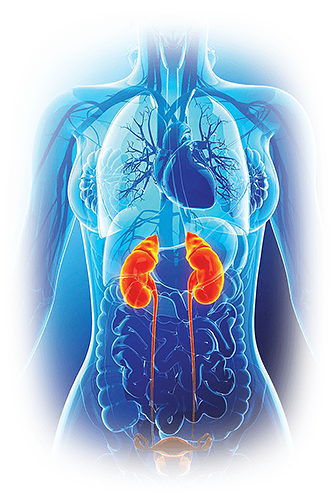Login
For Clinician Providers
For Clinician Providers
For Patients
6 Bladder Cancer Symptoms You Shouldn’t Ignore
Bladder cancer doesn’t get the same publicity as breast, colon, lung or prostate cancer, but cancer of the bladder is the seventh most common cancer in the United States, with around 79,000 new diagnoses made annually. Would you know the symptoms of bladder cancer to look out for though? Blood in your urine is the most common sign of bladder cancer, occurring in up to 90% of bladder tumors. However, what other symptoms should you stay vigilant for?
Painful urination
You may experience discomfort, stinging or a burning sensation when you urinate, which is known medically as dysuria. Infections are the most likely cause of pain during urination and a urinary tract stone or bladder inflammation are additional causes of pain when you pass urine. However, there is a chance that painful urination is a cancer symptom. To receive the right diagnosis for your urinary pain, it is wise to visit your doctor.
Small and frequent urination
Passing small amounts of urine often is another sign of a urinary tract infection or can be a symptom of an enlarged prostate gland. Frequent urination requires investigation though to rule out cancer.
Frequent UTIs
Although women are more prone to urinary tract infections, whether male or female, you should get urinary infections checked out if you have never experienced them previously. Urinary tract infections are caused by bacteria, but bladder cancer makes you more susceptible to these infections, so it pays to see your doctor if you experience frequent UTIs.
Lower back pain
A later symptom of bladder cancer is pain in your lower back in the region of your kidneys, known as flank pain. Multiple conditions affecting your urinary tract can cause flank pain, so it is important you seek medical advice to receive the right diagnosis and treatment.
Lower leg swelling
Fluid can accumulate in your legs, known as lymphedema, if your lymph system is damaged. There are many possible causes of lymphedema, but if bladder cancer spreads to your lymph nodes, blockage of your lymph system can trigger the build-up of fluid in your legs. Even if there is a benign cause of lymphedema, serious infections or blood clots are a possibility, so you should consult your doctor.
Pelvic growth
A swelling in your lower abdomen could be down to a benign growth, such as fibroids or an ovarian cyst in women, or arise from an infection or inflammation within your bowels. However, pelvic masses are sometimes malignant and these growths include bladder tumors. You should always report any pelvic growth to your doctor for investigation.
While bladder cancer shares similar symptoms to less sinister medical conditions, it pays to get new signs and symptoms of ill-health checked out. An all clear gives you peace of mind, but if you do have bladder cancer, you can receive more timely treatment if you report early symptoms, which gives you a better chance of a good outcome.



